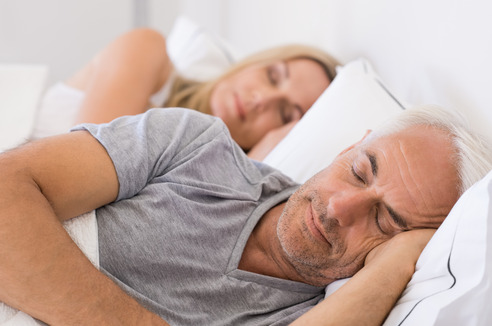
Quality sleep is essential for maintaining overall health and well-being. For individuals dealing with sleep apnea, striking the right balance between daytime napping and nighttime rest is crucial for effective treatment. Read on to learn about the impact of napping on sleep apnea management and some practical tips for achieving better sleep at night.
How Does Napping Affect Nighttime Sleep?
It’s no secret that insufficient nighttime sleep can lead to daytime fatigue, making the idea of a nap particularly enticing. However, for those with sleep apnea, excessive daytime napping can disrupt the body’s natural sleep-wake cycle, potentially undermining the effectiveness of treatment.
That said, here are some tips for encouraging better nighttime rest:
- Limit Daytime Naps – While a short power nap can be helpful, extended or frequent napping during the day can lead to difficulty falling asleep at night. Aim to keep daytime naps to a maximum of 20-30 minutes to avoid interfering with your nighttime sleep schedule.
- Create a Sleep-Inducing Environment – Design your bedroom to be a sleep sanctuary. Avoid stimulating activities like scrolling through your cell phone or reading in bed. Instead, reserve your bedroom solely for sleep and relaxation.
- Establish a Consistent Sleep Schedule – Consistency is key when it comes to regulating your body’s internal clock. Try to go to bed and wake up at the same time each day, even on weekends. This helps synchronize your sleep patterns and improve overall sleep quality.
The Pitfalls of CPAP Therapy
Continuous Positive Airway Pressure (CPAP) therapy has been a standard treatment for sleep apnea. However, it comes with its own set of challenges. Many individuals find the CPAP mask uncomfortable and restrictive, which can lead to non-compliance. Additionally, the machine’s bulkiness makes it less portable, limiting the freedom to travel without hassle.
Why You Should Consider Oral Appliance Therapy
For those seeking a more convenient and portable alternative, oral appliance therapy offers a promising solution. Here are just a few incredible advantages you can look forward to:
- Oral appliances are less invasive and more comfortable than CPAP masks. They do not require a noisy machine, providing a more peaceful sleep environment.
- Oral appliances are compact and easy to transport, allowing individuals to maintain their sleep routine even while away from home.
- The comfort and ease of use associated with oral appliances often result in higher compliance rates compared to CPAP therapy.
About the Practice
Long Family Dental is dedicated to the well-being of residents near and surrounding the practice. Drs. Robert and Chris Long proudly carry forward the legacy established by their father, Dr. Henry Long. They go beyond enhancing smiles – they enhance the overall quality of life. If you’re seeking a more convenient and portable alternative to CPAP therapy, oral appliance therapy offers a promising solution. To learn more, schedule an appointment through our website or call (972) 833-6307.
